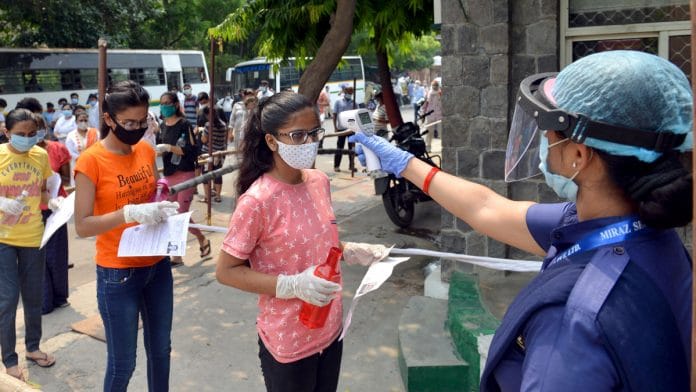New Delhi: The Supreme Court Thursday emphasised that “reservation is not at odds with merit but furthers its distributive consequences” and upheld the constitutional validity of 27 per cent quota for Other Backward Classes (OBCs) in the National Eligibility cum Entrance Test (NEET) for undergraduate and postgraduate medical admissions.
In a detailed order, the two-judge bench of the apex court comprising Justices D.Y. Chandrachud and A.S. Bopanna said that “merit cannot be reduced to narrow definitions of performance in an open competitive examination” and “high scores in an examination are not a proxy for merit”.
The bench said merit “should be socially contextualized and reconceptualized as an instrument that advances social goods like equality that we as a society value”.
The order also underlined that competitive examinations “are not reflective of excellence, capabilities, and potential of an individual which are also shaped by lived experiences, subsequent training, and individual character”. Also, “open competitive examinations do not reflect the social, economic, and cultural advantage that accrues to certain classes and contribute to their success” in such examinations, it said.
However, the top court also clarified that “this is not to say that performance in competitive examination or admission in higher educational institutions does not require a great degree of hard work and dedication but it is necessary to understand that “merit” is not solely of one’s own making”.
Read the full text of the court’s order:






